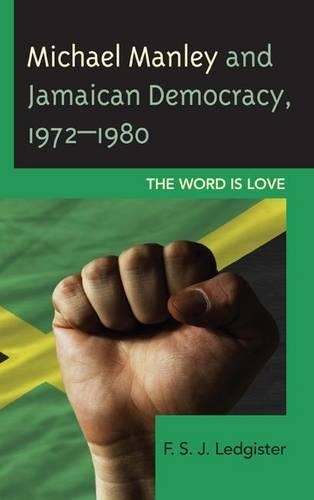
Michael Manley and Jamaican Democracy, 19721980: The Word Is Love
(Hardback)
Publishing Details
Michael Manley and Jamaican Democracy, 19721980: The Word Is Love
By (Author) F. S. J. Ledgister
Bloomsbury Publishing PLC
Lexington Books
5th June 2014
United States
Classifications
Professional and Scholarly
Non Fiction
321.8097292
Physical Properties
Hardback
142
Width 165mm, Height 237mm, Spine 16mm
354g
Description
This book examines the democratic ideas of Michael Manley, Jamaican prime minister from 1972 to 1980, and again from 1989 to 1992, during his government in the 1970s. Manley wrote three books during or about that period, The Politics of Change, A Voice at the Workplace, and Jamaica: Struggle in the Periphery. The first two laid out his policy ideas regarding egalitarian democratic change and economic democracy, and the third reprised those ideas and assessed their implementation and the obstacles they faced during the eight and a half years Manley served as prime minister. While Manley was seen as a socialist firebrand, a close examination of his ideas reveals a democratic nationalist whose motivation was love of country and a desire to promote national self-confidence and egalitarianism within the framework of liberal democracy and a reformed capitalism.
Reviews
Ledgister steers us deftly through the recent political history of Jamaica as he examines the politics and ideas of one of the most influential leaders of the past half century and throws light on this critical period in Jamaican and Caribbean history. It is time for a fresh look at the Manley years, and Ledgister's scholarly, elegant, yet critical study does exactly that. This is necessary reading for all students of the Caribbean, as well as anyone interested in the practical and theoretical questions associated with postcolonial regimes that sought to initiate social change in the difficult political economy of the late twentieth century. -- Brian Meeks, University of the West Indies
Dr. Ledgister has written an excellent introduction to the postcolonial thought of Michael Manley. He has carefully examined Michael Manleys core ideas concerning the expansion and deepening of democracy in Jamaica in the 1970s, arguably the most radical moment in twentieth-century Jamaican politics. Manleys ideas challenged the class and racial legacies of the islands colonial and plantation system with a vision based on respect for the majority of the people of African descent and rights for women and workers, economic justice, and a greater role in international relations in an era marked by the development of many new states. Readers of this volume will be able to appreciate Manleys thinking as he expressed his ideas in eloquent political rhetoric as well as in his political writings. This is a balanced text in which the author engages the criticisms of his political opponent, Edward Seaga, who defeated Michael Manley in the 1980 general elections. -- Rupert Lewis, University of the West Indies
Author Bio
F. S. J. Ledgister is associate professor of political science at Clark Atlanta University.
